

GENERAL
Denmark-Ghana sign strategic sector cooperation agreement
Ghana and Denmark have signed the second phase of the Strategic Sector Cooperation (SSC) aimed at deploying innovative technologies to reduce water losses and improve sanitation.
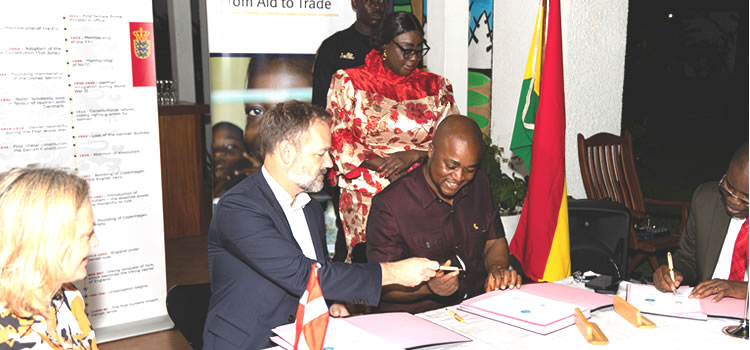
Date Created : 10/9/2023 12:00:00 AM : Story Author : Timothy Ngnenbe/ Ghanadistricts.com
The signing of phase two of the SSC followed the successful implementation of the first phase of the agreement from 2019 to 2023. The cooperation agreement was signed between the Tema Metropolitan Assembly (TMA) and the city of Aarhus, Denmark, as well as the Ghana Water Company Ltd (GWCL) and the Aarhus Vand A/S, the Danish water management company.
As part of the agreement, which will be implemented from 2024 to 2026, the partners will work together to implement new technologies that will help to reduce non-revenue water, build local capacity and roll out a climate adaptation plan.
Signing
The mayor of Aarhus, Denmark, Jacob Bundsgaard and the Chief Executive of the Tema Metropolitan Assembly (TMA), Yohane Amarh Ashitey, signed the pact for their respective cities, while the Chief Executive Officers (CEOs) of Aarhus V and A/S, Karina Topp and the Ghana Water Company Ltd (GWCL), Dr Clifford A. Braimah, initialed for their companies respectively.
Present at the signing ceremony were the Minister of Sanitation and Water Resources, Freda Prempeh; the Executive Director of the Environmental Protection Agency (EPA), Dr Henry Kwabena Kokofu, as well as other officials of the cities of Aarhus and Tema.
Commitment
The Danish Ambassador to Ghana, Tom Nørring, said the signing of the second phase of the SSC was evident that Ghana and Denmark were committed to working together for their mutual benefit.
He said although the over 30 years of development cooperation between the two countries changed focus after Ghana attained the lower middle income country status in 2020, there were more strategic sector corporations that could be leveraged for sustainable development. Mr Nørring said such forms of cooperation were especially in water and sanitation, food and agriculture, climate change and health.
He noted that the cooperation between Aarhus and Tema was a good example of how cities and institutions could work together across borders to facilitate development.
"We can achieve more if we all put our shoulders to the wheel and commit more resources to innovations that are at the very centre of our development," he said.
Milestone
The Aarhus mayor said the signing of the memorandum of understanding between the two cities was a major milestone as it would pave the way for the consolidation of the gains made in phase one and scaling up of established technologies.
Mr Bundsgaard said he was particularly excited about the cooperation agreement because having access to clean water was a human right, "so we see this cooperation as a very important thing."
"The work done in phase one is very good and we have high confidence pushing forward. We have reached some concrete results by making sure that we have optimised some of the innovative systems, dealt with leaking pipes which is a waste of resources and makes it difficult to bring clean water to the citizens," he said.
He stressed that inter-city cooperation, especially between the global north and south, was key to unlocking technologies that would enhance service delivery and promote sustainable development. He said it was for that reason that city managers, politicians and experts from both countries needed to strengthen cooperation so that innovative solutions could be deployed to address development challenges.
"I sign the MoU for phase two of the cooperation, looking forward to achieving more results that will help to improve the everyday lives of the citizens," he said.
Gains for TMA
The TMA mayor said the cooperation with the city of Aarhus in the first phase had improved the waste water management and sewerage systems in the Tema Metropolis, giving hope that the gains would be consolidated in the second phase.
Mr Ashitey noted that through exchange programmes between Aarhus and Tema, technocrats from the two sides shared ideas and built their capacity in efficient management of water. He added that the adoption of Geographic Information Systems (GIS) monitoring system had helped to improve sanitation and waste water management in Tema.
Background
The first phase of the strategic sector cooperation between Aarhus and TMA started in 2019. The SSC was focused on four thematic areas — urban water management, climate adaptation, capacity building, institutional collaboration and partnership.
Under the water component, the cooperation was targeted at tackling waste water management and reducing non-revenue water. One of the key outcomes of phase one of the SSC was capacity building where officials of the TMA were trained under the DFC programme in Denmark.
There was also the hands-on bit where Aarhus technical experts came to work on the field with technocrats at the TMA to impart expertise to the local team.

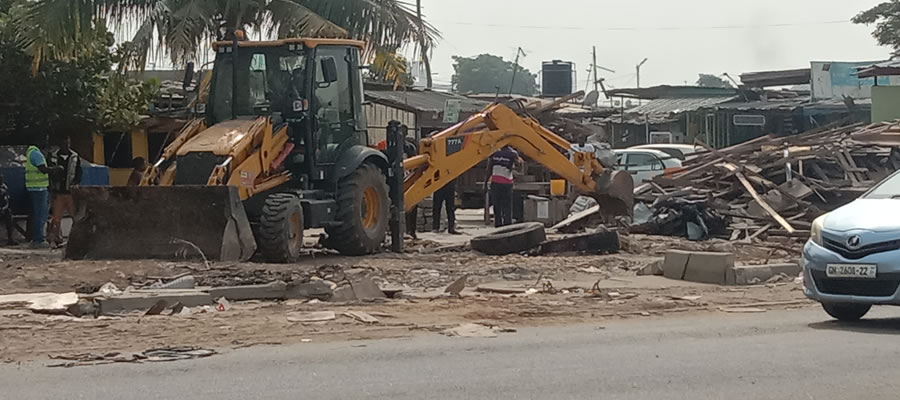
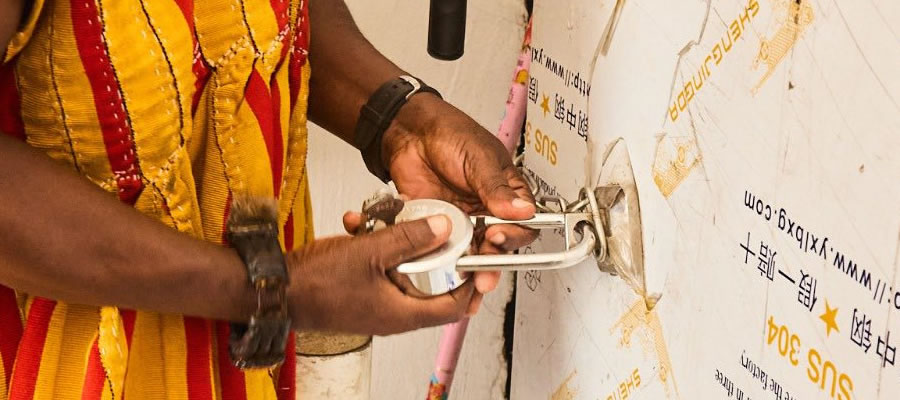



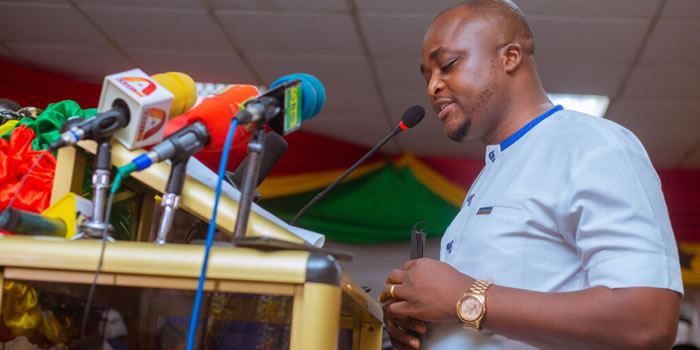

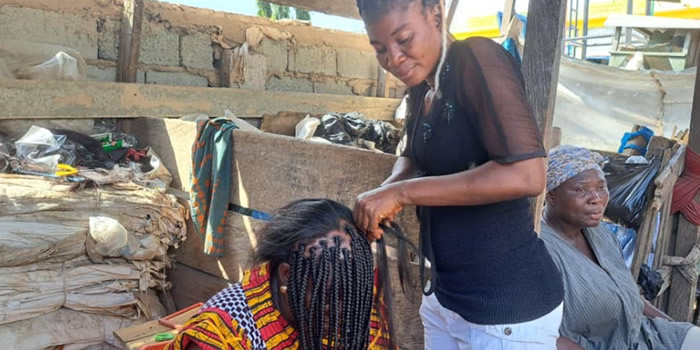
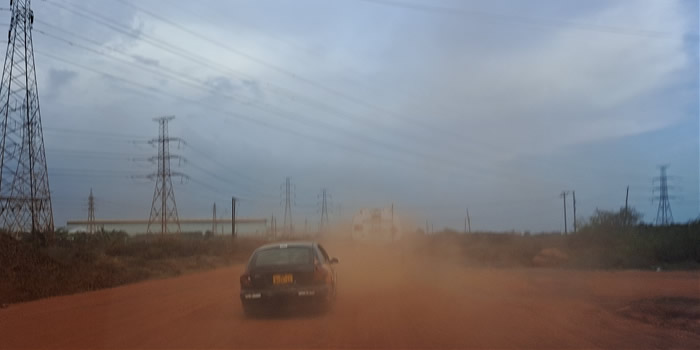
 facebook
facebook
 X
X
 Youtube
Youtube
 instagram
instagram
 +233 593 831 280
+233 593 831 280 0800 430 430
0800 430 430 GPS: GE-231-4383
GPS: GE-231-4383 info@ghanadistricts.com
info@ghanadistricts.com Box GP1044, Accra, Ghana
Box GP1044, Accra, Ghana